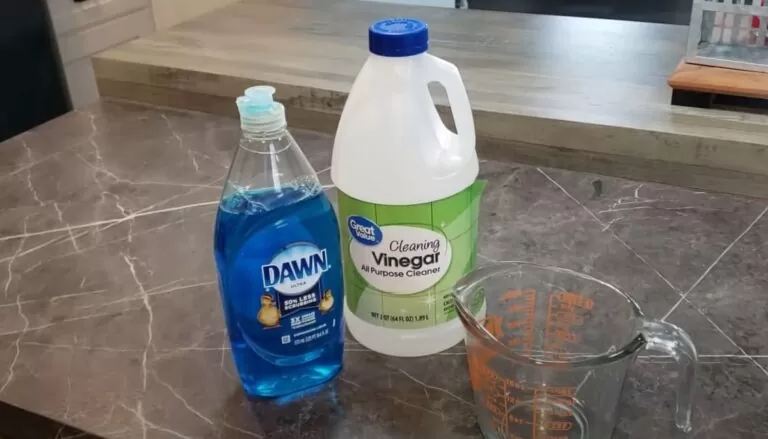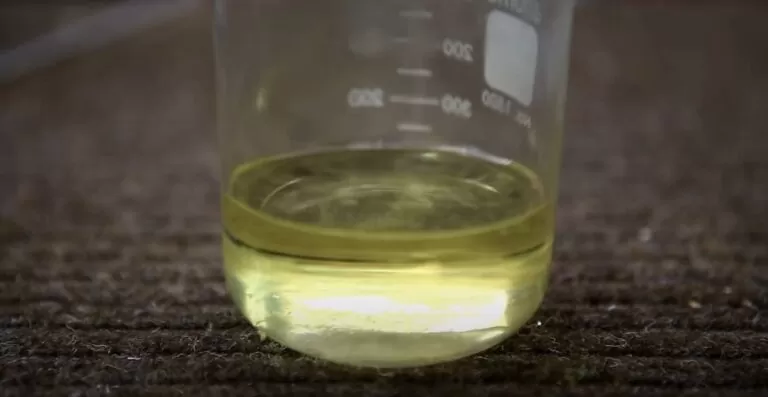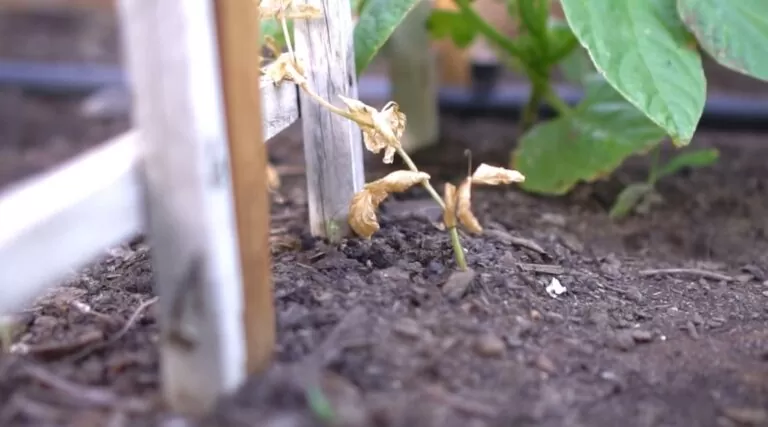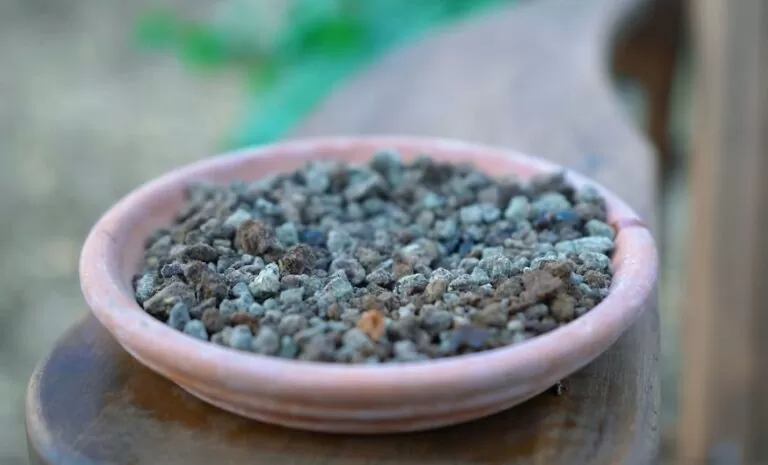Can You Mix Roundup With Vinegar?
Roundup is a popular herbicide that is commonly used to eliminate unwanted weeds and plants. However, some people have been experimenting with adding vinegar to Roundup in the hopes of creating a more effective weed-killing solution. The idea behind this mixture is that vinegar will increase the acidity of the solution, making it more potent and effective. But, is it safe and effective to mix Roundup with vinegar? This article aims to explore the potential risks and benefits of mixing Roundup with vinegar and provide insight into whether or not this combination is a good idea for those looking to eliminate weeds from their yard or garden.
Is It Possible to Mix Roundup With Vinegar?
While it is technically possible to mix Roundup with vinegar, it is not recommended by the manufacturer or agricultural experts. The active ingredient in Roundup is glyphosate, which works by inhibiting an enzyme that is essential for plant growth. Vinegar, on the other hand, contains acetic acid, which can also kill plants by causing dehydration and damaging cell membranes.
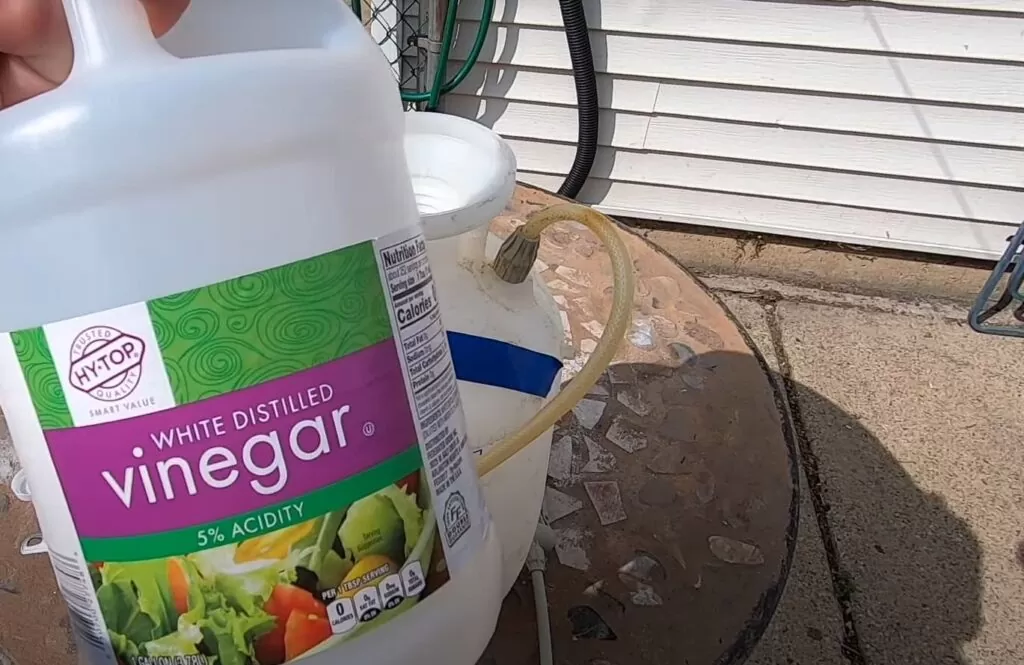
While some people believe that adding vinegar to Roundup can increase its effectiveness, the reality is that vinegar can actually reduce the effectiveness of glyphosate by making it less available to plants. Additionally, the combination of Roundup and vinegar may produce a toxic and potentially dangerous chemical reaction.
Furthermore, it is important to note that Roundup is a potent herbicide and should be used with caution. It is essential to follow the manufacturer’s instructions carefully and avoid applying it on windy days to prevent it from drifting onto unintended areas or plants.
It is not recommended to mix Roundup with vinegar, as it can reduce the effectiveness of the herbicide and potentially produce a hazardous chemical reaction. Instead, it is best to use Roundup as directed by the manufacturer and seek alternative solutions for weed control if necessary.
What Is Roundup?
Roundup is a popular herbicide that is commonly used to control weeds and unwanted plants. It is produced by the agricultural company, Monsanto, and contains glyphosate as its active ingredient. Glyphosate works by inhibiting an enzyme that is essential for plant growth, effectively killing unwanted vegetation.
Roundup is widely used in agriculture, as well as in residential settings for lawn care and garden maintenance. It is available in various formulations, including liquid concentrate, ready-to-use spray bottles, and granules for easy application.
While Roundup is an effective herbicide, its use has been the subject of controversy due to concerns over its potential health and environmental impacts. Some studies have linked glyphosate to cancer and other health problems, while others have suggested that its use can harm beneficial insects and pollinators. As a result, the use of Roundup has been restricted in some countries, and its safety continues to be a topic of debate among scientists and policymakers.
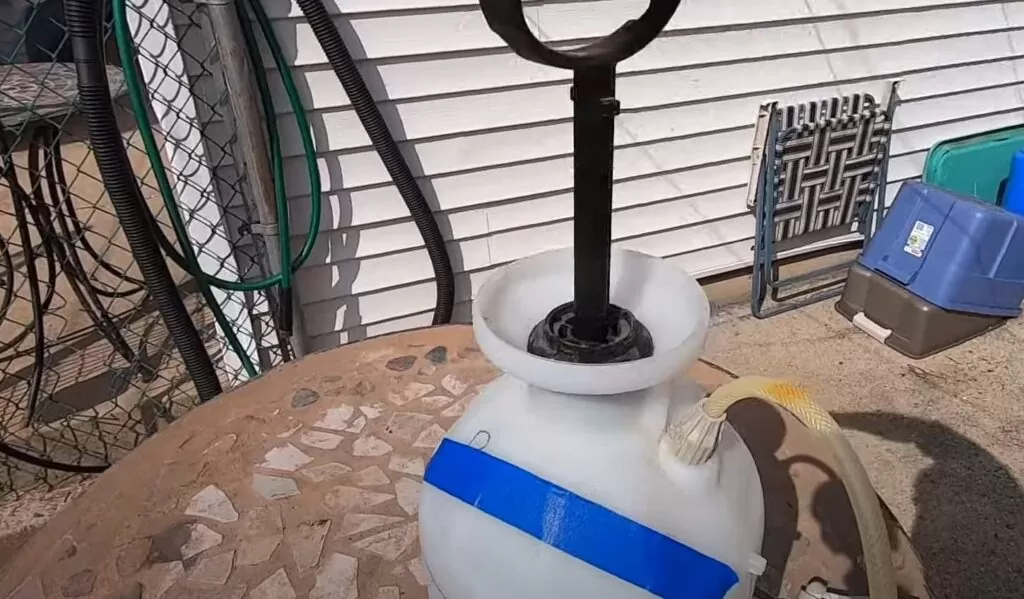
How Was Created Roundup?
Roundup was created by a chemist named John E. Franz in the 1970s while working for the agricultural company Monsanto. Franz was tasked with developing a new herbicide that would be more effective and environmentally friendly than existing products on the market.
Through his research, Franz discovered the active ingredient glyphosate, which worked by inhibiting an enzyme that was essential for plant growth. This meant that glyphosate could effectively kill weeds and unwanted plants without harming surrounding vegetation.
After conducting extensive testing and research, Monsanto introduced Roundup to the market in 1974. It quickly became popular among farmers and gardeners due to its effectiveness and ease of use. Today, Roundup is one of the most widely used herbicides in the world and is available in various formulations for different applications. Despite its popularity, the safety of Roundup continues to be a subject of controversy and debate.
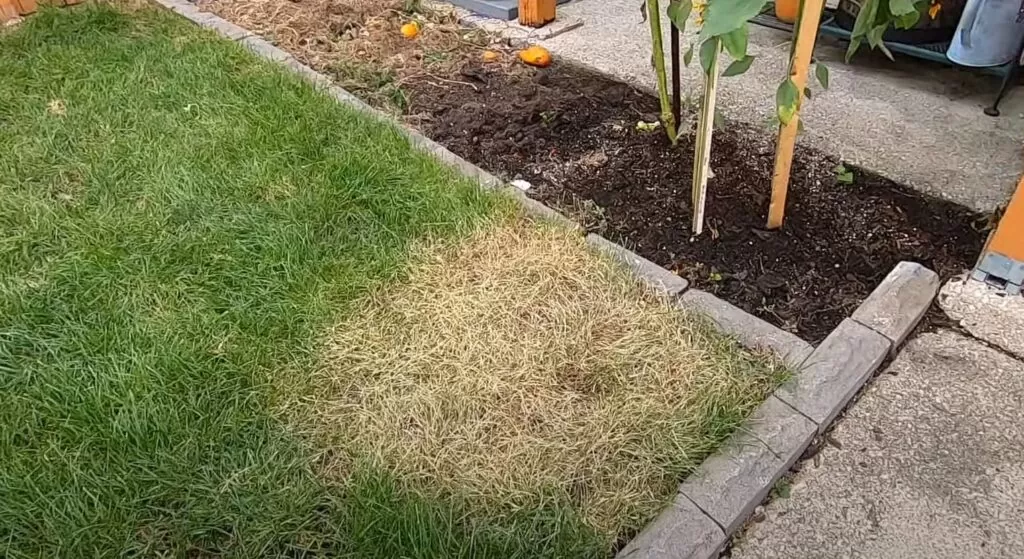
Composition Of Roundup
The active ingredient in Roundup is glyphosate, which is a non-selective herbicide that works by inhibiting an enzyme that is essential for plant growth. Glyphosate is absorbed by the plant and then transported to its growing points, where it interferes with the synthesis of amino acids, leading to plant death.
In addition to glyphosate, Roundup also contains various other ingredients, including surfactants, which help to improve the penetration of glyphosate into the plant, and adjuvants, which are added to enhance the effectiveness of the herbicide.
The specific composition of Roundup may vary depending on the formulation and intended use. For example, some Roundup products may contain additional ingredients such as diquat or pelargonic acid, which can increase the speed of plant desiccation.
It is important to note that while glyphosate is the active ingredient in Roundup, the other ingredients in the product can also have an impact on its toxicity and environmental impact. As such, the safety of Roundup and other herbicides continues to be a subject of debate and research.
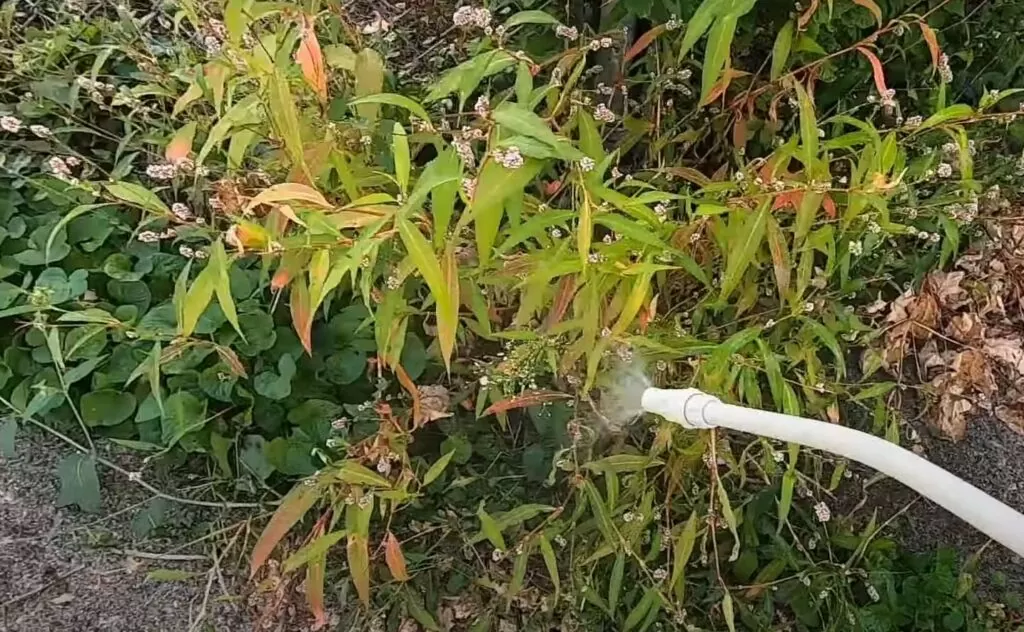
Composition Of Mixed Roundup With Vinegar
Mixing Roundup with vinegar is not recommended, and there is no specific composition for this mixture. However, if someone were to mix Roundup with vinegar, the composition would depend on the amount and concentration of each ingredient used.
Roundup contains glyphosate as its active ingredient, along with other ingredients such as surfactants and adjuvants. Vinegar, on the other hand, contains acetic acid, which can also have herbicidal properties.
When mixed together, the resulting composition could potentially have reduced effectiveness due to vinegar’s potential to reduce the availability of glyphosate to the plant. Additionally, the combination of Roundup and vinegar may produce a hazardous chemical reaction, making it unsafe to use.
It is important to note that mixing herbicides and other chemicals can be dangerous and should only be done under the guidance of a trained professional. It is always recommended to follow the manufacturer’s instructions and avoid mixing chemicals unless explicitly advised to do so by a knowledgeable source.
Advantages Of Mixing Roundup With Vinegar
Mixing Roundup with vinegar is generally not recommended, as it can reduce the effectiveness of the herbicide and potentially produce a hazardous chemical reaction. As such, there are no significant advantages to mixing these two products together.
While some people believe that adding vinegar to Roundup can increase its effectiveness, this is not supported by scientific evidence. In fact, vinegar can reduce the availability of glyphosate to the plant, making the herbicide less effective.
Furthermore, mixing chemicals can be dangerous and should only be done under the guidance of a trained professional. Improperly mixing Roundup with vinegar can result in the production of toxic or flammable gases, which can pose a serious risk to health and safety.
It is not recommended to mix Roundup with vinegar, and there are no significant advantages to doing so. It is best to use Roundup as directed by the manufacturer and avoid mixing chemicals unless advised to do so by a knowledgeable source.
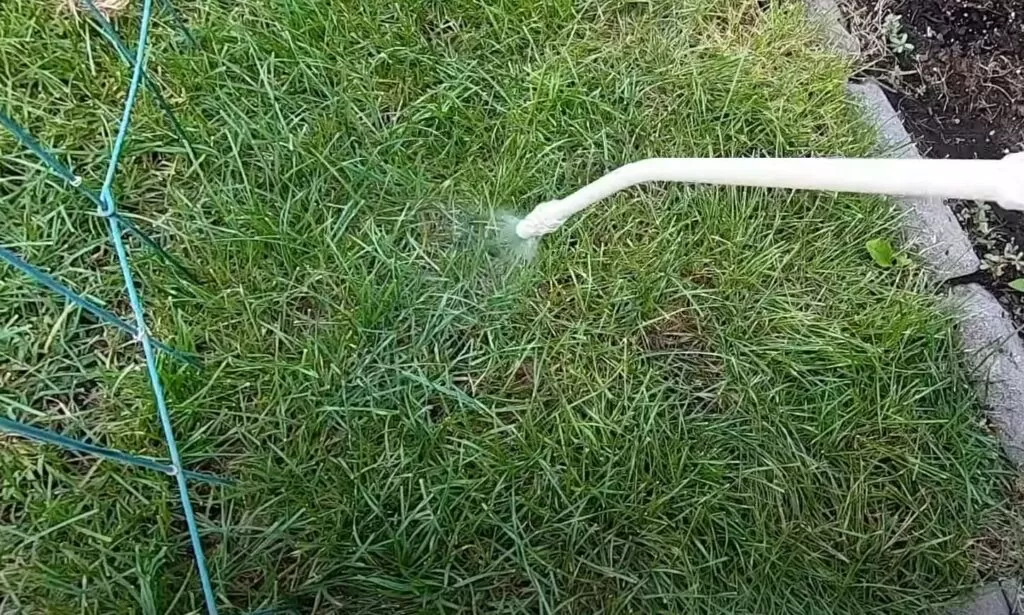
Disadvantages Of Mixing Roundup With Vinegar
There are several disadvantages to mixing Roundup with vinegar, and it is generally not recommended to do so. Some of the key disadvantages include:
- Reduced effectiveness: Vinegar can reduce the availability of glyphosate to the plant, making the herbicide less effective. As a result, mixing Roundup with vinegar can reduce its ability to control weeds and unwanted vegetation.
- Hazardous chemical reaction: When Roundup is mixed with vinegar, it can potentially produce a hazardous chemical reaction. This can lead to the production of toxic or flammable gases, which can pose a serious risk to health and safety.
- Unknown composition: The composition of the resulting mixture can vary depending on the amount and concentration of each ingredient used. This can make it difficult to predict the effectiveness of the mixture, as well as any potential health or environmental impacts.
- Health and environmental risks: Both Roundup and vinegar can have health and environmental risks when used improperly. Mixing these two products together can increase the risk of exposure to harmful chemicals and toxins.
There are several disadvantages to mixing Roundup with vinegar, including reduced effectiveness, hazardous chemical reactions, unknown composition, and increased health and environmental risks. As such, it is generally not recommended to mix these two products together, and it is best to use Roundup as directed by the manufacturer.
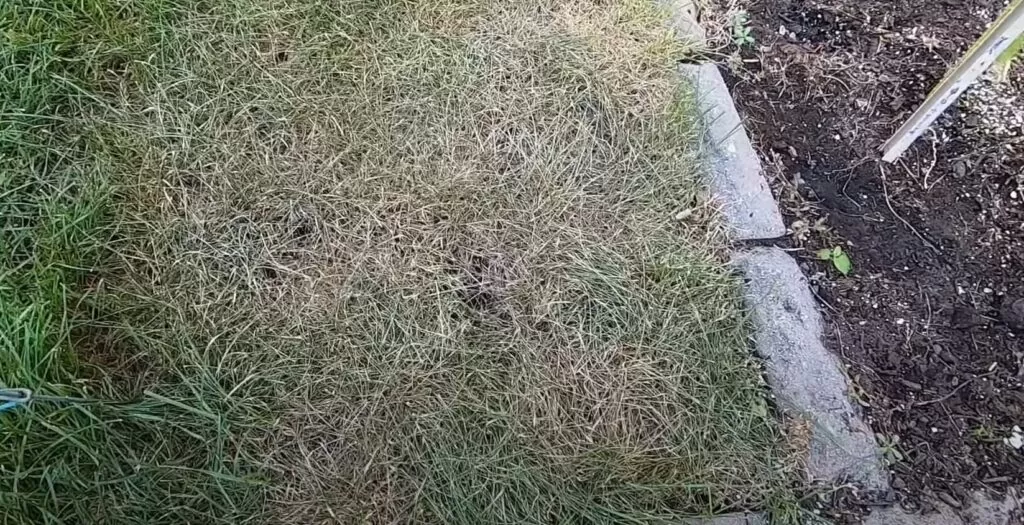
FAQ
With what i can mix Roundup and vinegar?
It is generally not recommended to mix Roundup with vinegar or any other chemicals, as this can be dangerous and may reduce the effectiveness of the herbicide. However, if you need to enhance the effectiveness of Roundup or require a more natural alternative, there are some alternatives you can consider:
- Add a surfactant: Roundup already contains surfactants that help to improve its penetration into the plant. However, if you need to improve the effectiveness of the herbicide, you may consider adding a non-ionic surfactant. This can help to improve the absorption of the glyphosate into the plant, making it more effective.
- Use a natural alternative: If you prefer to avoid chemical herbicides, you can use natural alternatives such as vinegar or salt. For example, a solution of vinegar and water can be effective at killing weeds when applied directly to the leaves. Similarly, a solution of salt and water can also be effective, although it is important to be careful not to oversaturate the soil.
- Follow the manufacturer’s instructions: Roundup is designed to be effective on its own when used as directed by the manufacturer. To ensure the best results, it is important to follow the instructions carefully and avoid mixing chemicals unless advised to do so by a knowledgeable source.
In conclusion, while it is not recommended to mix Roundup with vinegar or any other chemicals, there are some alternatives you can consider to enhance the effectiveness of the herbicide or use natural alternatives. It is important to always follow the manufacturer’s instructions and avoid mixing chemicals unless advised to do so by a knowledgeable source.
How dangerous is Roundup?
Roundup can be dangerous if it is not used properly or if people are exposed to it in high concentrations. Glyphosate, the active ingredient in Roundup, has been linked to a range of health and environmental risks, including:
- Health risks: Exposure to glyphosate has been linked to a range of health risks, including cancer, reproductive problems, and damage to the liver and kidneys. While the level of risk depends on the amount and duration of exposure, it is important to take precautions when using Roundup or other herbicides.
- Environmental risks: Glyphosate can also have environmental risks, including contamination of waterways and harm to wildlife. Additionally, Roundup can kill not only weeds but also beneficial plants, such as those that provide food and habitat for pollinators.
- Risks to applicators: People who apply Roundup or other herbicides are at risk of exposure to the chemicals. This can happen through inhalation, skin contact, or ingestion. To minimize the risk, it is important to wear protective clothing and follow the manufacturer’s instructions carefully.
- Resistance: Overuse of Roundup and other herbicides can lead to the development of herbicide-resistant weeds. This can make it more difficult to control weeds over time and can lead to the need for stronger and more toxic herbicides.
In conclusion, Roundup can be dangerous if it is not used properly or if people are exposed to it in high concentrations. To minimize the risks, it is important to follow the manufacturer’s instructions carefully, wear protective clothing, and avoid overuse of herbicides. Additionally, it is important to consider natural alternatives and other methods of weed control to reduce reliance on herbicides.
How is dangerous vinegar?
While vinegar is generally considered safe for humans and the environment, it can still pose some risks if it is not used properly. Some of the potential dangers of vinegar include:
- Skin irritation: Vinegar can be irritating to the skin, especially if it is used in high concentrations or if it is applied frequently. This can lead to redness, itching, and other forms of irritation.
- Eye irritation: Vinegar can also be irritating to the eyes, and exposure to the eyes can lead to redness, tearing, and discomfort.
- Acidic damage: Vinegar is acidic and can cause damage to surfaces that are sensitive to acid, such as some types of flooring or countertops. It is important to avoid using vinegar on these surfaces or to dilute it with water before use.
- Harm to beneficial plants: While vinegar can be an effective herbicide, it can also kill beneficial plants, such as those that provide food and habitat for pollinators.
- Toxicity to pets: Vinegar can be toxic to some pets, especially if it is ingested in large amounts. It is important to keep vinegar out of reach of pets and to avoid using it in areas where they are likely to come into contact with it.
In conclusion, while vinegar is generally considered safe, it is important to use it carefully and to avoid overuse or exposure to sensitive surfaces, pets, and beneficial plants. If you have any concerns about the use of vinegar, it is important to consult with a knowledgeable source or seek professional advice.
Which alternatives can I use for mixing Roundup with vinegar?
There are several alternatives to consider instead of mixing Roundup with vinegar. Here are some options:
- Natural weed killers: There are several natural weed killers available that use ingredients like citrus oil, clove oil, or vinegar to kill weeds. These products can be effective without the potential risks associated with Roundup.
- Manual weed removal: Removing weeds by hand or with a tool like a hoe or cultivator can be an effective and eco-friendly alternative to chemical weed control.
- Mulching: Covering the soil with a layer of organic mulch can help to suppress weed growth and improve soil health.
- Solarization: Solarization involves covering the soil with plastic to trap heat and kill weeds and their seeds. This method can be effective for controlling weeds in areas with high temperatures and plenty of sunlight.
- Flame weeding: Using a propane torch to burn weeds can be an effective and eco-friendly way to control weeds without chemicals.
It is important to choose the method of weed control that is best suited for your specific needs and circumstances. Additionally, always follow the instructions carefully and take precautions to protect yourself and the environment when using any type of weed control method.
With what I should not mix Roundup?
It is important to be careful when mixing Roundup with other chemicals, as some mixtures can be dangerous or ineffective. Here are some substances that should not be mixed with Roundup:
- Other herbicides: Mixing Roundup with other herbicides can be dangerous, as it can increase the risk of toxicity and harm to plants and wildlife.
- Household cleaners: Mixing Roundup with household cleaners can also be dangerous, as it can lead to the release of toxic gases and fumes.
- Fertilizers: Mixing Roundup with fertilizers can also be dangerous, as it can increase the risk of toxicity to plants and soil.
- Strong acids or bases: Mixing Roundup with strong acids or bases can cause the release of toxic gases and fumes and can be dangerous to handle.
- Petroleum-based products: Mixing Roundup with petroleum-based products can be dangerous and can increase the risk of toxicity to plants and wildlife.
In general, it is best to avoid mixing Roundup with any other chemicals or substances unless specifically instructed to do so by the manufacturer. If you have any questions or concerns about using Roundup or any other chemicals, it is important to consult with a knowledgeable source or seek professional advice.
With what I should not mix vinegar?
It is important to be careful when mixing vinegar with other substances, as some mixtures can be dangerous or ineffective. Here are some substances that should not be mixed with vinegar:
- Bleach: Mixing vinegar with bleach can produce chlorine gas, which can be extremely dangerous and can cause severe respiratory problems.
- Ammonia: Mixing vinegar with ammonia can produce toxic fumes that can be dangerous to inhale.
- Baking soda and vinegar: Although baking soda and vinegar are often used together for cleaning purposes, they should not be mixed together in the same container, as the mixture can be ineffective.
- Hydrogen peroxide: Mixing vinegar with hydrogen peroxide can produce a corrosive acid that can be harmful to the skin and eyes.
- Castile soap: Mixing vinegar with castile soap can cause the soap to curdle, which can make it less effective.
In general, it is best to avoid mixing vinegar with any other chemicals or substances unless specifically instructed to do so by the manufacturer. If you have any questions or concerns about using vinegar or any other chemicals, it is important to consult with a knowledgeable source or seek professional advice.
For what else can I use roundup?
Roundup is primarily used as an herbicide to control weeds and unwanted vegetation in agricultural, commercial, and residential settings. However, there are also some other uses for Roundup, including:
- Harvest aid: Roundup is sometimes used as a harvest aid in agricultural settings to help dry down crops like wheat, barley, and oats.
- Desiccant: Roundup can also be used as a desiccant to dry down weeds and other plants prior to harvest.
- Ripener: Roundup is sometimes used as a ripener in commercial fruit and vegetable production to promote even ripening and improve yield.
- Lawn renovation: Roundup can be used to clear an area of unwanted vegetation prior to lawn renovation, such as reseeding or laying sod.
- Fence line clearing: Roundup can be used to clear vegetation along fence lines, roadsides, and other areas where mechanical equipment may not be able to access.
It is important to follow the label instructions carefully and take precautions to protect yourself and the environment when using Roundup or any other chemical product. Additionally, it is always a good idea to consider alternative methods of weed control that are safe and effective, such as natural weed killers or manual removal.
Related Video: Quick Tip: Is DIY vinegar weed killer better than Roundup?
Final Words
While mixing Roundup with vinegar can have some advantages in terms of weed control, there are also several disadvantages and potential dangers to consider. Roundup is a powerful herbicide that can have harmful effects on the environment and human health, and mixing it with vinegar can increase the risk of toxicity and other problems. Additionally, vinegar can be harmful in certain circumstances and should not be mixed with certain substances. Therefore, it is important to carefully consider the risks and benefits of mixing Roundup with vinegar and to explore alternative methods of weed control that are safe and effective. Ultimately, the best approach will depend on your specific needs and circumstances, and it is important to consult with a knowledgeable source or seek professional advice before using any type of chemical weed control method.


